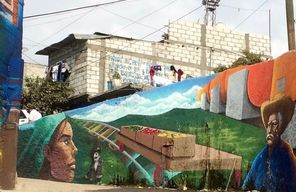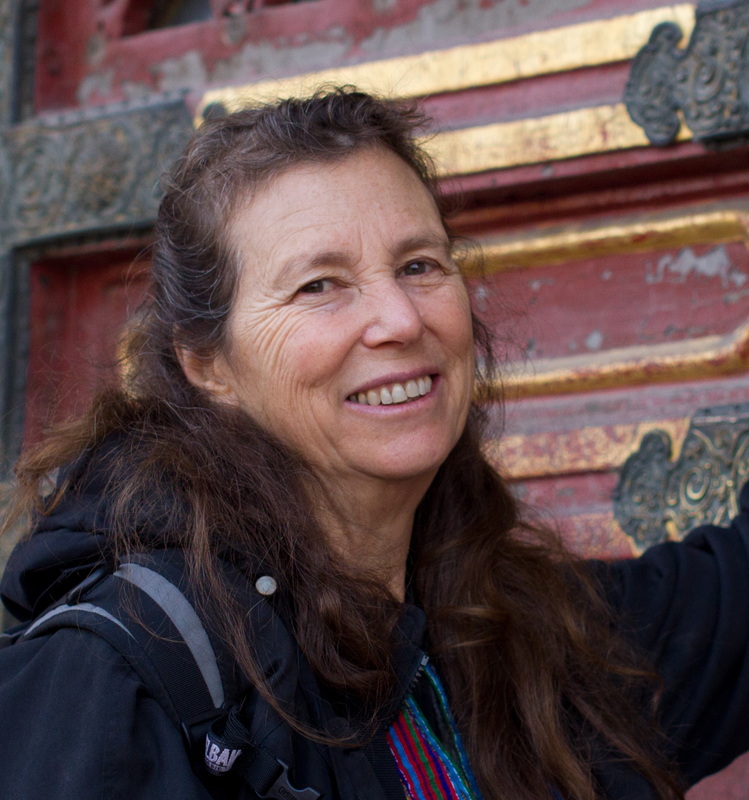
Erik, our host, begins a conversation with Isabel, who runs the kitchen. He is inquiring how things are going with the breakfast program. Part of his job is to discover what the community needs, as he, along with his parents, Betsy and Howard, run Karitas, the foundation which built this kitchen when mothers expressed concern about kids not getting a proper breakfast.
After our visit Erik leads us on a walk to the community’s restored well –
but first he waves and smiles at Rosa, across the way, standing in her doorway.
We pass small abarottes (grocery stores) and tables with fruit and vegetables for sale. Most houses are quite simple – some, just concrete blocks, others are painted or adobe. Although this is a squatter’s settlement it is well established after almost 30 years with approximately 10,000 people living here. The government regularly offers to move the inhabitants to other, perhaps better homes, on the outskirts of the city – but these folks don’t want to leave.
Money is earned in the nearby city mercado, where men can always find a job unloading trucks or carrying packages for the shoppers back to their homes. The women work in the food stalls -- preparing and cooking food, making tortillas, or as vendors in the produce stalls. Living here means access to an abundance of easy to acquire jobs providing the income that is needed to maintain their lives.
We continue walking.
A few years ago, in a community meeting, the women noted that the well had fallen into disrepair and they could not use it for their laundry. They missed the opportunity to gossip and talk about what was happening in their families and with their neighbors. They had lost an important strand of their community web.
They decided to rebuild the well. For several days everyone worked together – men building the walls of the road to prevent the mud from sliding down, youngsters gathering and bringing stones, women cooking the tortillas and carne for the hungry workers. A cement company brought the paving stones. Now, in the early morning light, we gazed down at the stone washbasins adjacent to the well of water, waiting for the women to bring their laundry and share their of their lives.
We walked back towards our car, preparing to leave.
But first, Erik needed to say give a proper greeting to Rosa. At her doorway, he leaned over and gave her a kiss on her cheek – just as we had greeted all the women in the kitchen. We were introduced with a brief conversation.
As we took leave I asked about Rosa’s role in the community. She is always at her door, Erik said. She greets everyone, and knows who is coming and going. She keeps an eye on the children, especially the teenagers. If she is not in her doorway someone will go and look for her.
Of course, Erik would never leave or enter the community without greeting Rosa.
Rosa, standing in her doorway, making sure all is well.
Rosa -- an elder, standing in her public square, keeping watch over the community.

 RSS Feed
RSS Feed


